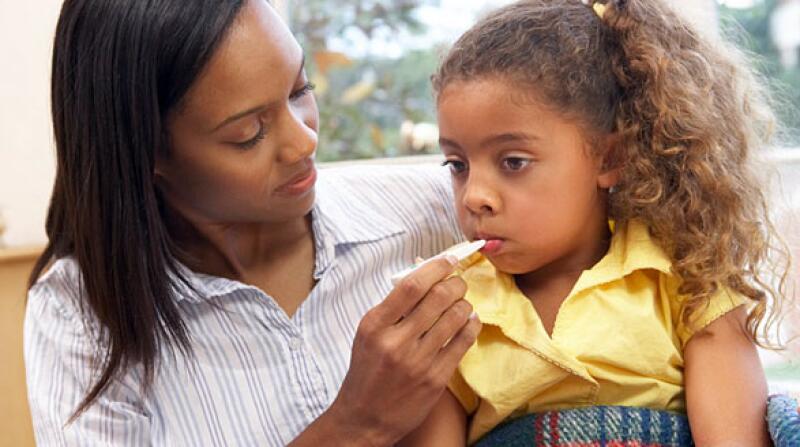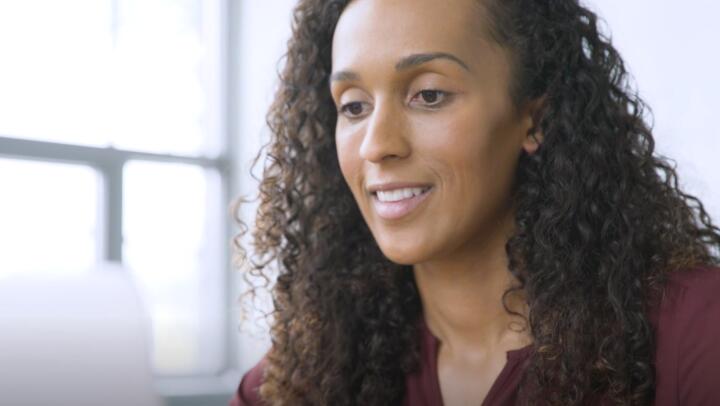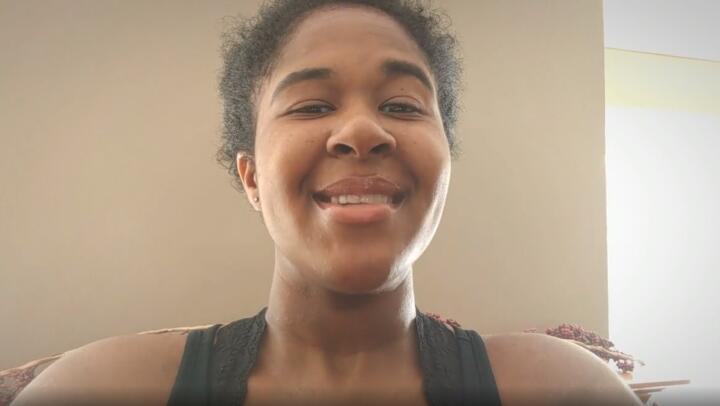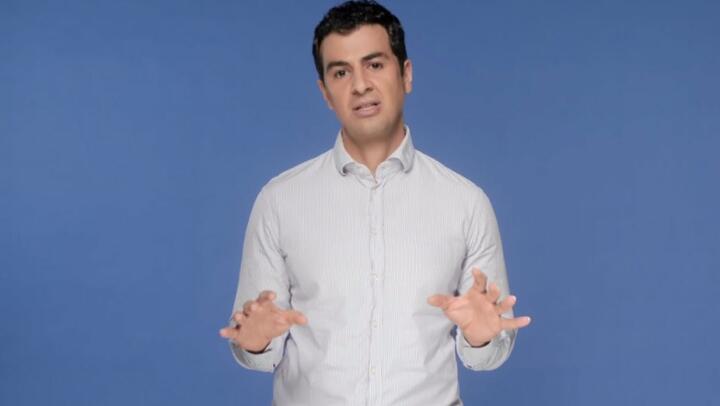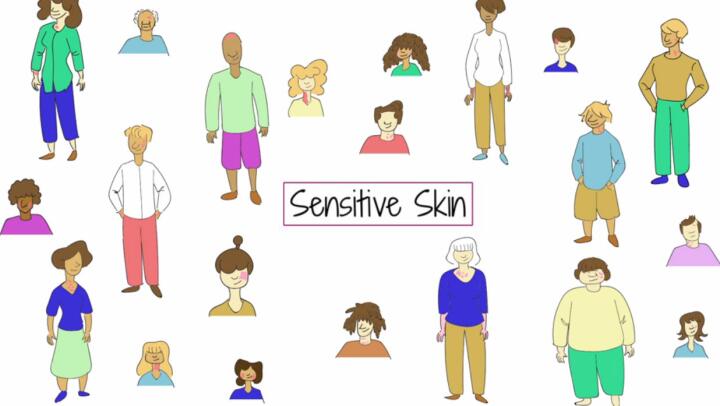11 Things Your Pediatrician Wants You to Know

Medically Reviewed By William C. Lloyd III, MD, FACS
-
 Expert InsightsBeing a parent is rewarding and challenging at the same time. It’s impossible to have all the answers or always know how to best care for your little one. Developing a partnership with your pediatrician is one way to help you stay ahead of your child’s health and well-being. But have you ever wondered what your child’s doctor is really thinking when you walk through the office door? Get the inside scoop from the experts.
Expert InsightsBeing a parent is rewarding and challenging at the same time. It’s impossible to have all the answers or always know how to best care for your little one. Developing a partnership with your pediatrician is one way to help you stay ahead of your child’s health and well-being. But have you ever wondered what your child’s doctor is really thinking when you walk through the office door? Get the inside scoop from the experts. -
 1. “We don’t judge you.”Embarrassed your toddler is throwing a fit over a lollipop? Cringing at the wax in your son’s ear? “There’s no need to be embarrassed at the pediatrician’s office. Most of us have kids ourselves and know what it’s like,” says pediatrician Yasir Kazmi, MD. “We don’t judge you, your parenting style, or your hygiene habits. We’re just here to help.”
1. “We don’t judge you.”Embarrassed your toddler is throwing a fit over a lollipop? Cringing at the wax in your son’s ear? “There’s no need to be embarrassed at the pediatrician’s office. Most of us have kids ourselves and know what it’s like,” says pediatrician Yasir Kazmi, MD. “We don’t judge you, your parenting style, or your hygiene habits. We’re just here to help.” -
-
 2. “Be honest with your child.”Many times a child comes to the pediatrician’s office not having a clue that something unpleasant, such as a shot or the removal of stitches, will happen. This makes the experience worse for everyone. “If you know your kids won’t like something at the doctor’s office, don’t keep quiet—or worse, lie about it,” says pediatrician Cynthia Urbanowicz, MD. “It helps so much if they’re prepared.” Ask your pediatrician’s office ahead of time for helpful ways to talk with your child.
2. “Be honest with your child.”Many times a child comes to the pediatrician’s office not having a clue that something unpleasant, such as a shot or the removal of stitches, will happen. This makes the experience worse for everyone. “If you know your kids won’t like something at the doctor’s office, don’t keep quiet—or worse, lie about it,” says pediatrician Cynthia Urbanowicz, MD. “It helps so much if they’re prepared.” Ask your pediatrician’s office ahead of time for helpful ways to talk with your child. -
 3. “Trust us on vaccinations.”“Study after study confirms child vaccinations are safe. They are not linked to autism,” explains pediatrician Frank Belmonte, DO. “I have two children and have vaccinated them both right on schedule. Time and again we see children come down with potentially serious diseases because their parents chose not to vaccinate.”
3. “Trust us on vaccinations.”“Study after study confirms child vaccinations are safe. They are not linked to autism,” explains pediatrician Frank Belmonte, DO. “I have two children and have vaccinated them both right on schedule. Time and again we see children come down with potentially serious diseases because their parents chose not to vaccinate.” -
 4. “Look at the big picture.”“New parents can stress themselves out trying to micromanage the process of caring for their babies—tracking every poop and feeding event,” says pediatrician Laura Whiteley, MD. “This can prevent parents from stepping back and looking at the big picture. Is your baby gaining weight? Sleeping well? Not in pain? Try to focus on overall wellness. And if you have any questions, ask your pediatrician.”
4. “Look at the big picture.”“New parents can stress themselves out trying to micromanage the process of caring for their babies—tracking every poop and feeding event,” says pediatrician Laura Whiteley, MD. “This can prevent parents from stepping back and looking at the big picture. Is your baby gaining weight? Sleeping well? Not in pain? Try to focus on overall wellness. And if you have any questions, ask your pediatrician.” -
 5. “A high fever isn’t always a crisis.”It’s alarming when your child spikes a fever. But whether the thermometer says 100 or 104 degrees, both are the same sign of infection. “If your child’s fever is high, it doesn’t mean the infection is more severe,” explains Dr. Kazmi. “Everyone is different. Just like some people sunburn worse than others, some people run hotter than others as a symptom of infection.”
5. “A high fever isn’t always a crisis.”It’s alarming when your child spikes a fever. But whether the thermometer says 100 or 104 degrees, both are the same sign of infection. “If your child’s fever is high, it doesn’t mean the infection is more severe,” explains Dr. Kazmi. “Everyone is different. Just like some people sunburn worse than others, some people run hotter than others as a symptom of infection.” -
-
 6. “Serve milk wisely.”Think you’re pumping your kids with bone-building calcium by giving them plenty of milk? This tactic could be backfiring. “Most kids need only 8 to 16 ounces (1 to 2 cups) of milk a day for strong bones,” says Dr. Urbanowicz. “Too much milk can block iron absorption, which can lead to anemia. More isn’t better.” Your child most likely gets calcium from other sources as well, like yogurt, cheese, and green, leafy vegetables.
6. “Serve milk wisely.”Think you’re pumping your kids with bone-building calcium by giving them plenty of milk? This tactic could be backfiring. “Most kids need only 8 to 16 ounces (1 to 2 cups) of milk a day for strong bones,” says Dr. Urbanowicz. “Too much milk can block iron absorption, which can lead to anemia. More isn’t better.” Your child most likely gets calcium from other sources as well, like yogurt, cheese, and green, leafy vegetables. -
 7. “Keep coming.”In our fast-paced society, it may seem easier to run into the urgent care center than make an appointment with your pediatrician. But continuity of care is valuable. “We develop a relationship with families and understand the patient’s overall health picture,” says Dr. Belmonte. “Urgent care is great if you need quick treatment after hours, but try to see your pediatrician—especially for yearly physicals.”
7. “Keep coming.”In our fast-paced society, it may seem easier to run into the urgent care center than make an appointment with your pediatrician. But continuity of care is valuable. “We develop a relationship with families and understand the patient’s overall health picture,” says Dr. Belmonte. “Urgent care is great if you need quick treatment after hours, but try to see your pediatrician—especially for yearly physicals.” -
 8. “Be wary of natural cures.”Many parents try to do the right thing by treating their little one’s cough or cold with natural remedies. It’s wiser to check with your doctor first. “Some natural remedies have a high alcohol content or contain honey, which can be dangerous to infants,” says Dr. Whiteley. “Don’t assume because it’s natural, it’s safe.”
8. “Be wary of natural cures.”Many parents try to do the right thing by treating their little one’s cough or cold with natural remedies. It’s wiser to check with your doctor first. “Some natural remedies have a high alcohol content or contain honey, which can be dangerous to infants,” says Dr. Whiteley. “Don’t assume because it’s natural, it’s safe.” -
 9. “Don’t stress about potty issues.”Many parents believe once a child is potty trained during the day, he or she should be dry at night, too. Not so. “If your child wets the bed, it doesn’t mean something is wrong,” says Dr. Urbanowicz. “About 15% of 5-year-olds wet the bed, and 10% still do at age 7. It’s especially common if a parent had the problem or if the child is a sound sleeper.”
9. “Don’t stress about potty issues.”Many parents believe once a child is potty trained during the day, he or she should be dry at night, too. Not so. “If your child wets the bed, it doesn’t mean something is wrong,” says Dr. Urbanowicz. “About 15% of 5-year-olds wet the bed, and 10% still do at age 7. It’s especially common if a parent had the problem or if the child is a sound sleeper.” -
 10. “Take responsibility for your child’s weight.”Obesity is a major epidemic among our youth. Parents can play a major role in prevention. Does your daughter expect juice in her sippy cup? Does your son gravitate to chips in the pantry? “It all starts in the grocery store. If you don’t buy it, it won’t be available to eat or drink,” says Dr. Kazmi. “Set a good example. Don’t expect your kids to do something you’re not willing to do, too.”
10. “Take responsibility for your child’s weight.”Obesity is a major epidemic among our youth. Parents can play a major role in prevention. Does your daughter expect juice in her sippy cup? Does your son gravitate to chips in the pantry? “It all starts in the grocery store. If you don’t buy it, it won’t be available to eat or drink,” says Dr. Kazmi. “Set a good example. Don’t expect your kids to do something you’re not willing to do, too.” -
 11. “Take a break from the rat race.”“We see children every day and realize how quickly they grow. It’s important to know your time with them as young children is limited. Make the most of it,” says Dr. Belmonte. He reminds parents to slow down a little, have conversations and meals with their kids, and try to find time to play together. “Creating a healthy relationship is powerful.”
11. “Take a break from the rat race.”“We see children every day and realize how quickly they grow. It’s important to know your time with them as young children is limited. Make the most of it,” says Dr. Belmonte. He reminds parents to slow down a little, have conversations and meals with their kids, and try to find time to play together. “Creating a healthy relationship is powerful.”
11 Things Your Pediatrician Wants You to Know





